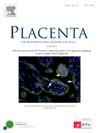与妊娠并发症相关的胎盘中溶质运载家族转运体的异常表达。
IF 3
2区 医学
Q2 DEVELOPMENTAL BIOLOGY
引用次数: 0
摘要
导言:溶质载体家族转运体(SLCs)对胎盘中营养物质和微量元素的摄取至关重要,在胎儿的生长发育中发挥着重要作用。它们的失调与各种妊娠疾病有关。然而,全面了解它们在胎盘功能和妊娠并发症中的作用和调控方法在很大程度上仍是一个尚未探索的领域,因此本研究具有新颖性和重要意义:方法:我们对公开的 NCBI GEO 微阵列和 RNA-Seq 数据集进行了严格的荟萃分析,然后对 PE 和 IUGR 中差异表达的 SLC 进行了生物信息学分析。然后在 PE 胎盘样本中使用 qPCR 验证了所识别的 SLC,从而确保了研究结果的可靠性和有效性:结果:对子痫前期(PE)和宫内生长受限(IUGR)数据集的生物信息学分析表明,通过研究差异表达的SLCs,确定了特定SLC转运体与疾病病理之间的显著关联。随后使用 qPCR 对胎盘样本进行验证,证实了 SLC6A8、SLC16A10、SLC25A3 和 SLC29A3 的大量下调,突出了它们在 PE 和 IUGR 发病机制中的失调:讨论:通过生物信息学分析观察到的SLC6A8、SLC16A10、SLC25A3和SLC29A3的明显下调以及qPCR的验证表明,这些SLCs在妊娠期疾病中的表达不典型。我们的发现强调了多个 SLC 基因家族对与各种妊娠并发症相关的胎盘病理发展的潜在贡献。本文章由计算机程序翻译,如有差异,请以英文原文为准。
Aberrant expression of solute carrier family transporters in placentas associated with pregnancy complications
Introduction
Solute carrier family transporters (SLCs), crucial for nutrient and trace element uptake in the placenta, play a significant role in fetal growth and development. Their dysregulation is associated with various pregnancy disorders. However, a comprehensive understanding of their role and regulation in placental function and pregnancy complications is still a largely unexplored area, making this study novel and significant.
Methods
We performed a rigorous meta-analysis of publicly available NCBI GEO microarray and RNA-Seq datasets followed by bioinformatics analysis of differentially expressed SLCs in PE and IUGR. The identified SLCs were then validated using qPCR on PE placental samples, ensuring the reliability and validity of the findings.
Results
Bioinformatics analysis of preeclampsia (PE) and Intrauterine Growth restriction (IUGR) datasets revealed significant associations between specific SLC transporters with disease pathology, identified by studying differentially expressed SLCs. Subsequent validation using qPCR on placental samples confirmed considerable downregulation of SLC6A8, SLC16A10, SLC25A3, and SLC29A3, highlighting their dysregulation in the pathogenesis of PE and IUGR.
Discussion
The significant downregulation of SLC6A8, SLC16A10, SLC25A3, and SLC29A3 observed by bioinformatics analyses and validated by qPCR indicates atypical expression of these SLCs in gestational disorders. Our findings underscore the potential contribution of multiple SLC gene families to the development of placental pathologies associated with diverse pregnancy complications.
求助全文
通过发布文献求助,成功后即可免费获取论文全文。
去求助
来源期刊

Placenta
医学-发育生物学
CiteScore
6.30
自引率
10.50%
发文量
391
审稿时长
78 days
期刊介绍:
Placenta publishes high-quality original articles and invited topical reviews on all aspects of human and animal placentation, and the interactions between the mother, the placenta and fetal development. Topics covered include evolution, development, genetics and epigenetics, stem cells, metabolism, transport, immunology, pathology, pharmacology, cell and molecular biology, and developmental programming. The Editors welcome studies on implantation and the endometrium, comparative placentation, the uterine and umbilical circulations, the relationship between fetal and placental development, clinical aspects of altered placental development or function, the placental membranes, the influence of paternal factors on placental development or function, and the assessment of biomarkers of placental disorders.
 求助内容:
求助内容: 应助结果提醒方式:
应助结果提醒方式:


